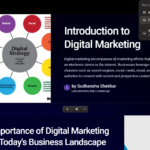meta: Breastfeeding in India, Benefits of breastfeeding
Table of Contents
Introduction

Breastfeeding, a practice deeply woven into the fabric of Indian culture, holds immense significance for both mothers and babies. As we embark on this exploration, let us delve into the rich tapestry of breastfeeding traditions, dispel myths, and celebrate the science-based benefits that empower informed choices.
Defining Breastfeeding in India
Breastfeeding encompasses various forms, from exclusive breastfeeding to partial supplementation. However, misconceptions abound. Let’s address a few:
- Myth of Insufficient Milk: Many believe breast milk alone may not suffice. In reality, breast milk adapts to meet a baby’s needs, adjusting its composition as the child grows.
- Working Mothers and Breastfeeding: Balancing work and breastfeeding can be challenging, but it’s possible. Workplace policies and support are crucial in enabling working mothers to continue breastfeeding.
- Appearance Concerns: Some worry that breastfeeding affects a baby’s appearance. Rest assured, breastfed babies thrive and exhibit their unique beauty.
Global and Breastfeeding in India Rates
Globally, breastfeeding rates remain suboptimal. According to the World Health Organization (WHO), babies are recommended for breastfeeding for the first six months. After six months, breastfeeding alongside complementary foods was continued, which is necessary for babies’ health. Unfortunately, only 41% of infants worldwide receive exclusive breastfeeding.
In India, the situation is complex. While breastfeeding initiation rates are high, exclusive breastfeeding rates drop significantly by six months. Efforts are underway to promote awareness and improve these statistics, but challenges persist.
Cultural Significance of Breastfeeding in India
India’s cultural diversity is reflected in its breastfeeding practices. Let’s explore:
- Historical Perspectives: Ancient texts extol breastfeeding as a sacred duty. The Ayurvedic tradition emphasizes the mother’s role in nourishing her child.
- Religious Influence: Hinduism celebrates breastfeeding as a form of seva (selfless service). Jainism and Sikhism also endorse breastfeeding.
- Community Practices: Each community has unique customs. Practices vary from ghutti (traditional herbal mixtures) to kajal (kohl) application.
- Stigma and Taboos: Sadly, some taboos persist. Public breastfeeding faces scrutiny, and misconceptions about colostrum persist.
Benefits Overview
Breastfeeding offers a plethora of benefits:
- Nutritional Superiority: Breast milk provides essential nutrients, antibodies, and growth factors.
- Bonding: Skin-to-skin contact during breastfeeding fosters emotional bonds.
- Health Benefits: Reduced risk of infections, allergies, and chronic diseases for babies. For mothers, it aids postpartum recovery and lowers the risk of certain cancers.
As we journey through this exploration, let’s celebrate the fusion of tradition and science, recognizing that breastfeeding is not just a biological act but a cultural legacy.
Here is an article from WHO: – World Health Organization (WHO) – Infant and Young Child Feeding.
Benefits of Breastfeeding for Babies
1. Immune System Development
Breast milk is a remarkable elixir that fortifies a baby’s immune system. Here’s a closer look:
- Colostrum: The initial milk produced by a mother’s breasts, colostrum, is a concentrated source of immune-boosting components. Rich in proteins, vitamins, and antibodies, it provides essential nourishment during the first few days after birth. Colostrum helps protect newborns from infections and supports their developing immune system.
- Antibodies: Newborns enter the world with immature immune systems, rendering them susceptible to infections. Fortunately, breast milk emerges as a superhero, brimming with protective antibodies known as immunoglobulins (Igs). Among these antibodies, IgA emerges as the guardian of mucosal surfaces, coating the baby’s respiratory tract, gastrointestinal tract, and ocular membranes.
- This barrier is a formidable defense against ubiquitous pathogens, including common cold viruses, bacteria triggering diarrhea, and agents responsible for ear infections. IgG and IgM, stalwart companions of IgA, also collaborate to fortify the immune system against grave threats such as pneumonia and meningitis.
- Empirical evidence underscores the superiority of breastfed infants in combating infections compared to their formula-fed counterparts. Studies reveal a notable reduction in ear infections, respiratory ailments, and allergic reactions among breastfed babies. Indeed, this liquid gold is an enduring boon, bestowing infants a robust foundation for lifelong immune resilience.
2. Cognitive Development
Breastfeeding isn’t just about satisfying hunger; it fuels brainpower:
- Brain-Friendly Nutrients: Breast milk contains essential fatty acids like docosahexaenoic acid (DHA), which is crucial for brain development. DHA contributes to neural cell growth and function, enhancing cognitive abilities.
- Memory and Language Skills: Studies have shown that breastfed babies perform better in memory tests and exhibit improved language skills. The unique composition of breast milk provides the necessary building blocks for optimal brain function.
3. Reduced Chronic Disease Risk
Breastfeeding offers long-term health benefits:
- Asthma: Breastfed infants have a reduced risk of developing asthma later in life. The protective effects extend beyond infancy.
- Obesity: Breastfeeding may help prevent childhood obesity. Nursing allows babies to self-regulate their intake, promoting healthy weight gain.
- Type 1 Diabetes: Research suggests that breastfeeding lowers the risk of type 1 diabetes. The exact mechanisms are still being explored, but breast milk’s protective factors play a role.
4. Nutritional Adequacy
Breast milk is nature’s perfect recipe for nourishment:
- Complete Nutrition: It contains the ideal balance of proteins, fats, carbohydrates, vitamins, and minerals. These nutrients support growth, development, and overall health.
- Antioxidants and Growth Factors: Breast milk provides antioxidants and growth-promoting factors that formula can’t replicate. It adapts to the baby’s changing needs as they grow.
5. Developmental Advantages
Breastfeeding influences various aspects of a child’s development:
- Sensory Perception: The skin-to-skin contact during nursing enhances sensory experiences. Babies feel warmth, comfort, and security.
- Motor Skills: The act of latching and sucking requires coordination, strengthening oral muscles, and fine motor skills.
- Social-Emotional Well-Being: Breastfeeding fosters emotional bonding. Oxytocin, released during nursing, promotes attachment and feelings of security.
6. Emotional Bond and Well-Being
Breastfeeding isn’t just about physical nourishment; it’s a profound emotional connection:
- Oxytocin: Often called the “love hormone,” oxytocin is released during breastfeeding. It deepens the bond between mother and baby, promoting feelings of love and attachment.
- Skin-to-Skin Contact: The warmth and closeness during nursing contribute to emotional well-being for both mom and baby. It’s a moment of shared comfort and intimacy.
Remember, breastfeeding is more than a feeding method—it’s a gift of love, health, and lifelong benefits. As you embark on this journey, know that you’re providing your baby with the best start in life.
Benefits of Breastfeeding for Mothers
Breastfeeding isn’t just about nourishing your baby—it also offers remarkable advantages for mothers. Let’s explore these benefits in detail:
1. Postpartum Recovery
Breastfeeding plays a crucial role in a mother’s recovery after childbirth:
- Uterus Involution: When you breastfeed, your body releases oxytocin, which helps the uterus contract. This process, known as involution, reduces the size of the uterus more quickly, aiding postpartum healing.
- Reduced Bleeding: Breastfeeding stimulates the release of oxytocin, which contracts the uterus and helps control postpartum bleeding. It’s a natural way to promote healing.
2. Chronic Disease Protection
Breastfeeding has long-term health benefits for mothers:
- Breast Cancer: Studies have consistently shown that breastfeeding reduces the risk of breast cancer. The longer a woman breastfeeds, the more significant the protective effect.
- Ovarian Cancer: Breastfeeding also lowers the risk of ovarian cancer. The hormonal changes during lactation play a role in preventing abnormal cell growth in the ovaries.
- Type 2 Diabetes: Mothers who breastfeed are less likely to develop type 2 diabetes later in life. The metabolic benefits extend beyond the breastfeeding period.
3. Weight Management
The connection between breastfeeding and weight management is intricate:
- Caloric Expenditure: Breastfeeding naturally expends additional calories, facilitating a gradual weight reduction. However, it’s vital to maintain realistic expectations, as rapid weight loss could impact milk production.
- Nourishing Diet: During breastfeeding, prioritizing a balanced and nutrient-rich diet is crucial. Such foods provide energy and support overall well-being, benefiting both mother and child.
- Individual Variances: Weight loss experiences differ among mothers due to various factors such as genetics, lifestyle, and overall health. Acknowledging this variability and avoiding unsubstantiated claims of achieving “magical” weight loss solely through breastfeeding is important.
4. Natural Birth Spacing
Breastfeeding influences fertility and birth spacing:
- Delaying Ovulation: Exclusive breastfeeding can delay ovulation, acting as a natural form of birth control. However, this method is most effective during the first six months and requires specific conditions (like frequent nursing).
- Consult a Healthcare Professional: While breastfeeding can help space pregnancies, it’s essential to use reliable birth control methods. Consult your healthcare provider for personalized advice.
5. Mental Health and Well-Being
Breastfeeding positively impacts a mother’s emotional state:
- Stress Reduction: Nursing triggers the release of oxytocin, promoting relaxation and reducing stress. It’s a bonding experience for both mom and baby.
- Postpartum Depression: Breastfeeding may help combat postpartum depression. The emotional connection fosters feelings of fulfillment and purpose.
Remember, every mother’s journey is unique. Whether you breastfeed exclusively or combine it with formula, know that you’re making a significant contribution to your health and your baby’s well-being. Seek support, stay informed, and cherish this precious time with your little one.
The Power of Breastfeeding: A Holistic Perspective
Breastfeeding—a dance of nourishment, resilience, and love—holds a tapestry of benefits that extend far beyond the immediate bond between mother and baby. In this extended exploration, we’ll unravel the intricate threads of breastfeeding, weaving together economic advantages, overcoming challenges Indian mothers face, and celebrating the empowerment it brings.
Economic Advantages of Breastfeeding
1. Healthier Babies, Lower Healthcare Costs
Breastfeeding isn’t just about bonding; it’s an investment in health and economics:
- Reduced Illness Rates: Breastfed babies experience fewer infections, allergies, and chronic diseases. This translates to lower healthcare expenses for families and society. Imagine the cost savings when hospitalizations, doctor visits, and medications decrease significantly.
- Cost-Effective Prevention: Investing in breastfeeding promotion and support yields substantial returns. By preventing costly medical interventions later in life, we create a healthier population and reduce the burden on healthcare systems. The ripple effect extends to reduced absenteeism at work, boosting overall productivity.
Data Reference: The World Health Organization (WHO) consistently emphasizes the economic impact of breastfeeding on healthcare costs.
2. Savings for Families
Breastfeeding is budget-friendly:
- Formula Costs: Formula feeding can be expensive, especially over months or years. The cost of formula, bottles, sterilizers, and other supplies adds up. In contrast, breast milk is nature’s gift—free and perfectly tailored.
- Equipment and Supplies: Breastfeeding requires minimal equipment—no need for formula mixers, bottle warmers, or endless sterilization cycles. A mother’s breast is always ready, day or night. The financial relief for families is immeasurable.
3. Broader Societal Benefits
A healthier population benefits everyone:
- Productivity: Breastfed babies tend to be healthier, leading to fewer parental workdays lost due to childcare responsibilities. When parents can focus on work, productivity increases, contributing to economic growth.
- Reduced Burden on Healthcare Systems: Imagine a society where sick infants occupy fewer hospital beds. Breastfeeding contributes to this vision of efficient healthcare systems and thriving communities. The economic gains extend beyond individual families to the nation as a whole.
Scientific Reports: Reports from national health agencies and research institutions underscore these societal benefits.
Overcoming Challenges: Empowering Indian Mothers
1. Latching Difficulties
- Challenge: Many mothers face latching difficulties, especially in the early days. Incorrect latch affects milk transfer and can lead to sore nipples.
- Solution: Seek professional help from lactation consultants. These experts guide you through proper latch techniques. Remember, it’s a skill that both you and your baby learn together. Patience and persistence pay off.
2. Low Milk Supply
- Challenge: Some mothers need more milk supply.
- Solution: Stay hydrated, nurse frequently, and trust your body. Breast milk production is demand-driven. The more your baby nurses, the more milk you’ll produce. Herbal supplements like fenugreek may help but consult a healthcare provider first. Remember, stress can impact milk supply, so self-care matters.
3. Lack of Support
- Challenge: Lack of support can be isolating. New mothers need encouragement and practical advice.
- Solution: Join local breastfeeding support groups. Connecting with other mothers provides emotional support and practical tips. Remember, you’re not alone in this journey. Share your experiences, seek advice, and celebrate small victories together.
4. Societal Pressure and Misinformation
- Challenge: Societal norms and misinformation can create unnecessary stress.
- Solution: Educate family members and friends about the benefits of breastfeeding. Cultural norms can evolve with awareness. Trust your instincts and seek accurate information. Remember, you’re making an informed choice for your baby’s well-being.
Support Services in India:
- National Lactation Helpline: Call 1-800-994-9662 for expert advice.
- La Leche League India: A network of breastfeeding support groups. Connect with other mothers who understand your journey.
Conclusion: Nurturing Choices
Breastfeeding isn’t a one-size-fits-all journey; it’s a symphony of choices:
- Respecting Individual Circumstances: Every mother’s situation is unique. Whether breastfeeding exclusively or combining with formula, the choice should be respected. Empowerment lies in informed decisions.
- Support Systems Matter: Families, communities, and healthcare providers are pivotal in nurturing successful breastfeeding journeys. Let’s build a supportive ecosystem where mothers feel heard, understood, and encouraged.
Let’s champion breastfeeding—an investment in health, love, and a brighter future for mothers, babies, and society. As we celebrate this dance of nourishment, let’s encourage further research, education, and awareness initiatives to promote breastfeeding success in India.
Breastfeeding FAQs: A Guide for Mothers
This FAQ section addresses common questions about breastfeeding, empowering you to make informed decisions for your unique journey.
Q: How long can babies be breastfed?
A: The World Health Organization (WHO) recommends exclusive breastfeeding for the first six months, followed by continued breastfeeding alongside complementary foods for up to two years or beyond. Ultimately, how long it takes to breastfeed is personal, made in consultation with healthcare providers, and based on individual circumstances.
Q: How many days of breastfeeding are necessary?
A: Even a short duration of breastfeeding provides significant benefits for both mothers and babies. The longer you breastfeed, the greater the benefits. However, there’s no minimum number of days required.
Q: What is the 4 4 4 rule for breastfeeding?
A: The “4 4 4 rule” is not a universally recommended guideline and is not endorsed by major health organizations. It suggests feeding a baby for 4 minutes on each breast every 4 hours for the first four days after birth. This approach can be restrictive and may not meet the individual needs of each baby. It’s crucial to follow your baby’s hunger cues and feed on demand.
Q: How long can breastfeeding take?
A: There is no specific age at which you must stop breastfeeding. The WHO recommends breastfeeding for up to two years or beyond, as long as both mother and baby are comfortable. Ultimately, the decision to stop breastfeeding is a personal one.
Q: How long should I breastfeed my newborn?
A: There is no specific age at which you must stop breastfeeding. The WHO recommends breastfeeding for up to two years or beyond, as long as both mother and baby are comfortable. Ultimately, the decision to stop breastfeeding is a personal one.
Q: What are the disadvantages of breastfeeding after 1 year?
A: There are no established disadvantages to breastfeeding after 1 year. Breastfeeding offers numerous health benefits for mothers and babies beyond the first year.
Q: Is a newborn breastfeeding for 2 hours?
A: While some newborns may breastfeed for extended periods, especially in the early days, it’s uncommon for them to nurse continuously for 2 hours. Pay attention to your baby’s cues and detach them from the breast if they seem sleepy or inactive.
Q: What is the average age to stop breastfeeding globally?
A: The average age of stopping breastfeeding varies significantly across countries and cultures. Globally, the median duration of breastfeeding is around 6 months.
Q: What are the 10 benefits of breastfeeding to the mother?
A: Here are 10 benefits of breastfeeding for mothers:
> Promotes postpartum recovery
> Reduces risk of certain cancers
> May aid in weight management
> Helps with emotional well-being
> Strengthens the bond between mother and baby
> Saves money compared to formula feeding
> Convenient and readily available
> Environmentally friendly
> Provides natural immune support for the mother
> May lower the risk of type 2 diabetes
Q: What are the benefits of breastfeeding?
A: Breastfeeding offers numerous benefits for both mothers and babies, including: For babies: – Stronger immune system – Reduced risk of infections and chronic diseases – Improved cognitive development – Emotional and social well-being For mothers: – Faster postpartum recovery – Reduced risk of certain cancers – Improved emotional well-being – May aid in weight management
Also Read: Best Bottle for Your Baby
The information on this blog is not intended to substitute for professional medical advice, diagnosis, or treatment. Always seek the advice of your physician or other qualified health provider with any questions you may have regarding a medical condition. Never disregard professional medical advice or delay seeking it because of something you have read on this blog.
The opinions expressed on this blog are personal and do not reflect the views of any organization or institution. The blog owner is not a medical professional and does not claim to be an expert on breastfeeding or any related topics. Unless otherwise stated, the blog owner does not endorse any products, services, or websites.






0 Comments